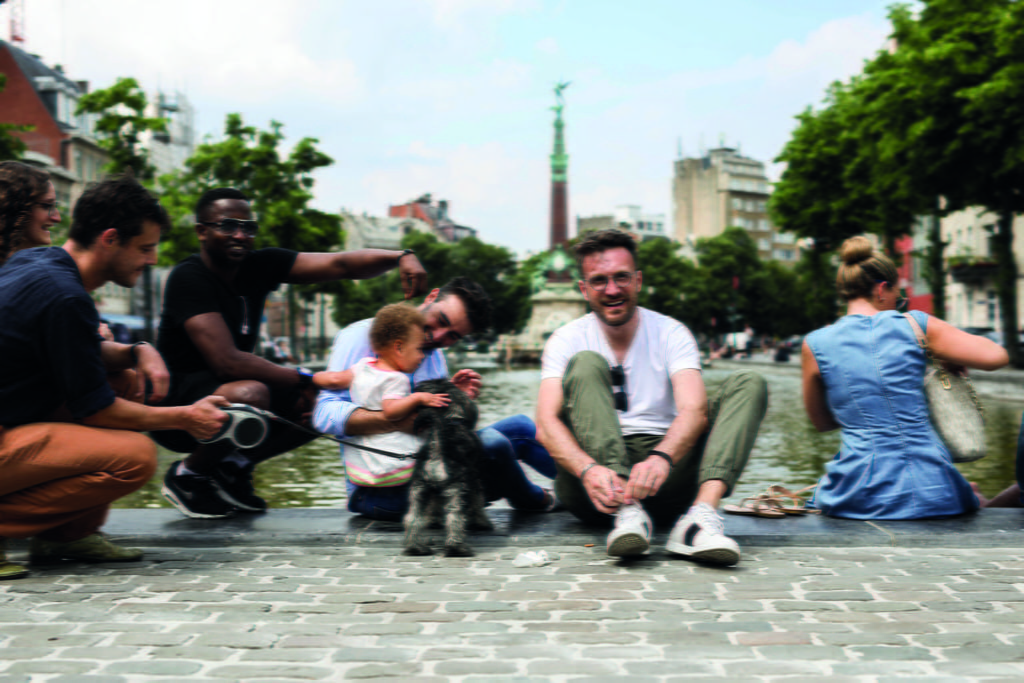Urban hymns
Polis’ project officer Pasquale Cancellara talks to Pascal Smet, Minister of Mobility and Public Works of the Brussels Capital Region for Thinking Cities
How would you describe the overall state of urban mobility in Brussels? What are the main challenges and trends at the moment?
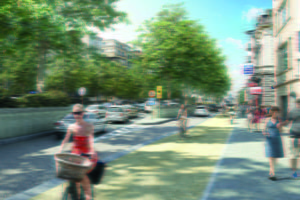 I think we are in transition. We used to be an exclusive city for cars, now we are transforming into a city for people: we are doing that by demolishing fly-overs, we are doing that by transforming urban highways and urban boulevards; we are making squares car-free, we are constructing dedicated cycle lanes, and investing massively, €6.2 billion, in public transport. But we are not there yet. There is a lot of work to do, because we are coming from far: because for a long time people here in Brussels were even addicted to their cars, and now, for the very first time over the past couple of years you can see there is a change of mood in the city.
I think we are in transition. We used to be an exclusive city for cars, now we are transforming into a city for people: we are doing that by demolishing fly-overs, we are doing that by transforming urban highways and urban boulevards; we are making squares car-free, we are constructing dedicated cycle lanes, and investing massively, €6.2 billion, in public transport. But we are not there yet. There is a lot of work to do, because we are coming from far: because for a long time people here in Brussels were even addicted to their cars, and now, for the very first time over the past couple of years you can see there is a change of mood in the city.
People now understand that there are too many cars, that we have to do something about them, that we need more space for pedestrians and more space for cyclists; they understand that we need to support more cyclists and pedestrians. So, I think we are in a good way now, but the main issue will be to keep on the same path after the elections and it is not going to stop because it is all something worth fighting for.
There are still too many cars: it’s a double explanation. There is still too many people, who are living in Brussels and use the car for short distance trips (less than 5 kilometers). However, they are not the main “main” problem. The main problem is the commuters who are coming into the city with their own individual car: they do not share their cars, and consequently there is a very inefficient use of road capacity.
Since the 50s-60s cars were seeped into the city, but you can’t do something like that anymore. Indeed, we are still dealing with that phenomenon. So this is is what we are now doing: we have to convince commuters that they should not come by their individual cars and therefore should rather using carpooling or taking public transport. Biking will eventually be an efficient way of commuting as well, but that will take some more time. But of course, all this is mainly a federal competence - Belgium is a bit complicated as a country in terms of politics – but also the fiscality of the mobility and the living conditions are federal: the RER, Réseau Express Régional or Réseau Eternellement Retardé [in English this translates as Network eternally late due to the time that is taking to build a suburban commuter/ rapid transit system like the Parisian one] is federal, and the status of company cars, which has also a major effect on the total number of cars we have in the city, is federal as well. To be fair, we do not have all the competence but, within our competence, we are changing the paradigm and I think that what we are doing is extremely important.
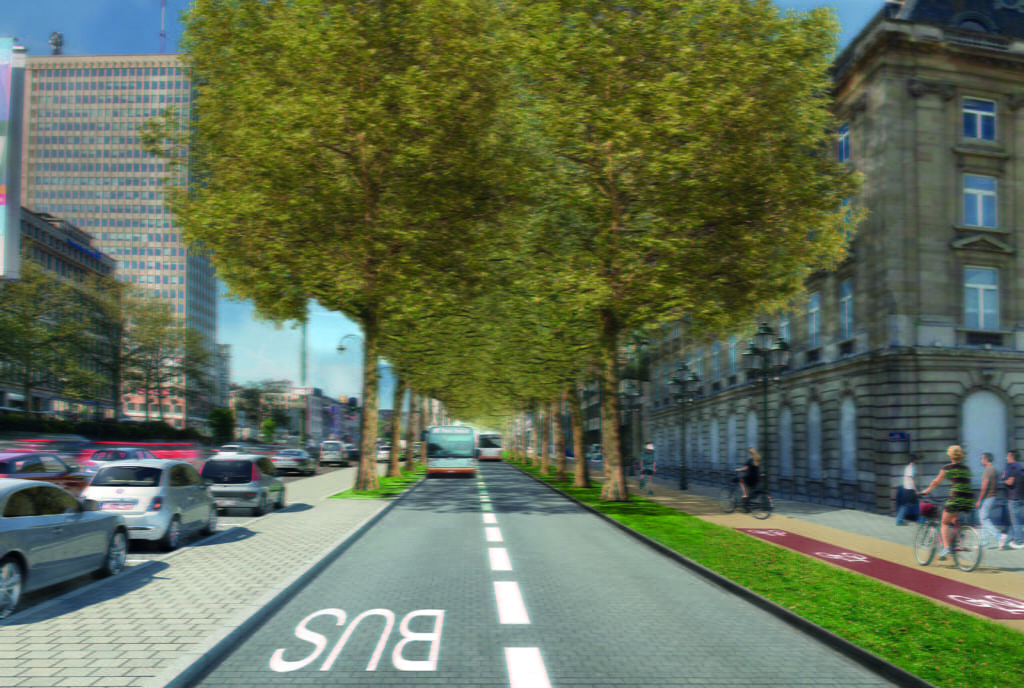
'People in Brussels were addicted to their cars but over the past couple of years you can see there is a change of mood in the city'
How do you see the role of private cars in Brussels today and in the future, particularly in relation to alternative and more sustainable modes of transport such as walking, cycling, car sharing, carpooling, etc.?
In the long future cars will disappear. I am really convinced that one day we will live in a city where there will be no individual, privately owned cars. They will be replaced by automated vehicles. We have a study that states that between 20,000 and 26,000 automated vehicles can replace all the cars in Brussels. That would be a major change, a completely different way to look into the city, and that is the reason why we are now preparing people to that, in order to promote car sharing like Drive Now, e-scooters, and e-bikes. We have also seen Jump, with its electric free-floating bicycles, arrive in Brussels. As “we are a little bit hilly” for biking, these Jump bikes are a major game-changer: one day people use them to go uptown too.
We have to free space, step by step, from cars, and convince people to share cars, because that is the future. And, for the short-distances, there will be the trottinettes (e-scooters) and bikes.
Recent research says that air pollution is killing 800,000 people a year in Europe. Brussels has recently launched a Low Emission Zone (LEZ) programme – what are its main features and what kind of impact do you expect it will have on the whole Brussels Region? Which other mobility measures do you think can be taken to fight climate change and improve air quality for all?
I think that people now understand that the reason we want less cars in the city is all about the quality of life and the quality of air. For the last few months citizens have clearly made the link between car use and air quality, therefore low emission policies are becoming more and more easier to implement: it took some time to decide it on a political level, but once it was decided there was not difficult. I think we should speed up the decisions regarding which cars are allowed to access the city and drive in it; at the beginning, this process had been fairly slow, but now it is going a bit faster, and I think we can actually speed it up a bit more. We have also to embrace the principle that there will be no more fuel cars in Brussels by 2030: only electric, or gas, or hydrogen. There is still a debate with the sector, so I think that it will be a major challenge for the next government. It will also be a major challenge to electrify the bus fleet, as we also know that that will cost €1.2 billion! For now, we are only buying hybrids and electric buses, but I think that in the future we will exclusively buy electric buses.
So, to be fair, the Low Emission Zone (LEZ) programme is only one of the measures we are introducing. The thing that is missing right now, and I think we really should do it although it is not my competence and I am just trying to work together with my colleagues, is to get measurements of air quality everywhere in the city, because people do not realize the problems related to bad air quality. I think that when they will be in the Petite Ceinture, in Schuman, in the Sablon, or wherever, and they will see in real time the air quality measurements, they will wake up.
I think that is something that is very urgent. We must get, like Barcelona did, real-time and app-accessible measurements of air quality everywhere in the city.
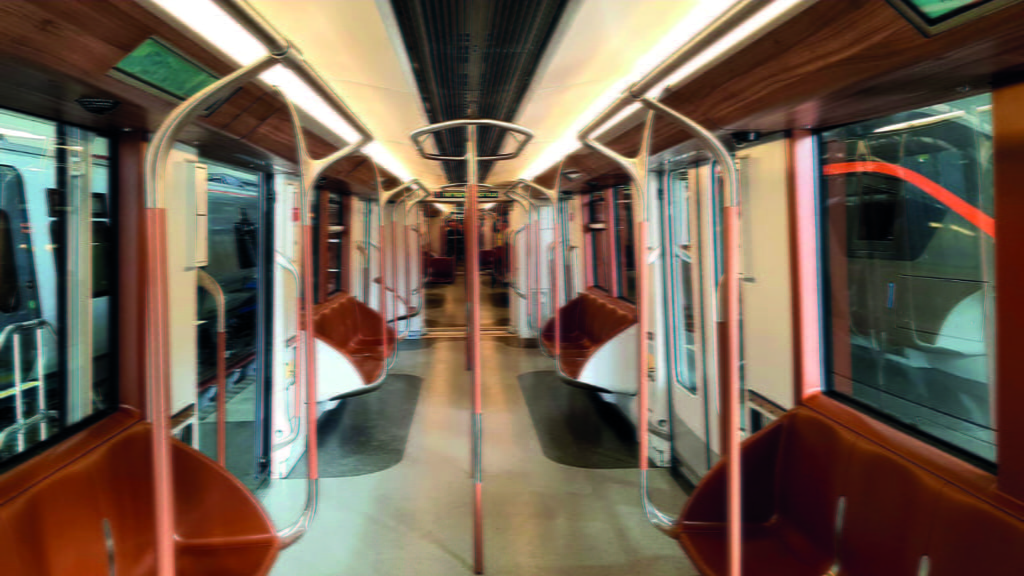
'I am really convinced that one day we will live in a city where there will be no individual, privately owned cars. They will be replaced by automated vehicles'
Brussels is an active member of the Polis network, where cities and regions look at how innovative solutions can help them to address urban mobility challenges. Many innovations are coming our way, at a very fast pace and all at the same time. It is also no longer the preserve of only the public sector to offer mobility services and the lines between public and private are blurring. Electrification, automation, the micromobility revolution, shared mobility services, and so on. How are you making use of these emerging trends to reach your policy goals?
First of all, we are including it and we made a new law for us to become a welcoming city through these micromobility solutions. New companies offering new micromobility services recognized our welcoming approach and since then they all want to come to Brussels. They did not want to before and I am happy about that.
Secondly, there will be a big change in Brussels with Mobility as a Service (MaaS). Of course, with that, there will be more private operators, therefore I think it would be very important for public authorities to get inside the algorithms. Indeed, if private operators use applications with algorithms, we should be sure that what we are proposing to our citizens is really meeting their interests and not the interest of the providers.
I will give you an example: if we book a car though an app, but the application itself is made by a car rental company, the debate on neutrality would be on because of course they would try to propose you the car as a transport solution. That is what happened in Los Angeles and other cities where people started discussing these algorithms. Big change will come in the next two years, as we will create in Brussels our new Traffic Center, and we will integrate public transport by dispatching traffic lights and traffic in general, as well as all the data of these operators. That is how we will finally start to manage traffic in Brussels. We are going to renovate a new building which will then be used to change all the software systems, too. Between now and two years time there is going to be a big change.
When working on improving Brussels’ mobility, which are the cities in Europe and in the world that inspire you the most, and how do you see the role of politicians in leading the transformation in transport?
I think the role of politicians is very important because they need to have a vision and an ambition. In my case I would like to have a “One Brussels” with one ambition and one vision and not 19 different municipal visions. This is essential to convince people to give the same message. This is why it is so complicated in Brussels, because we I am really convinced that one day we will live in a city where there will be no individual, privately owned cars. They will be replaced by automated vehicles Brussels Smet.indd 8 31/05/2019 11:01 9 CItyview PASCAL SMET, BRUSSELS as a Region say something but then municipalities can say something else and so the message of the public authorities are not in unison and you need in unison messages to convince people, so I really believe that the role of politics is essential.
In all modesty, what I am doing in Brussels is not easy. I was working on a long-term, changed position, I was hit a lot but now people like it and that’s also as a politician you have to believe what you are doing and to explain it and continue and stay focused, but in the end it will be good when it’s a good project.
That’s what happened with tram 8 and 9, the transformation of squares and the people are very happy now, whereas at the beginning they were not welcoming these transformations. And so, I take several cities as an example. Vienna is a good example, they have done great things; of course, Amsterdam, when you are going to take out all the cars from the city centre; even Madrid lately, or Copenhagen for the cycling but that’s easy to say. So, I think there are many cities that inspire our work. But cities are all different so you cannot just copy from one to another - you have to take the best practice and try to adapt it in some way to the local context.
If you had to take stock and assess your mandate as Minister of Mobility and Public Works of the Brussels Capital Region in these past five years, what do you consider your greatest successes and achievements? Is there something that you would have done differently?
The big success is the cycling lanes all along the Brussels small ring (Petite Ceinture/Kleine Ring) that is going to be a psychological change when it is finished in two years, because in Brussels if you are implementing a cycling infrastructure such as this one you first have to do work on the gas and sewer system, the water pipes, etc. Consequently it takes quite a lot of time but when it’s finished in two years it will be a major change. It will be the first time where we are really taking space away from cars and giving it to cyclists and pedestrians.
What I would have done differently concerns the government agreement where we should have included since the beginning all the streets where we want to make cycling lanes, because now we get too many discussions with the municipalities, politicians and the government who don’t want to get rid of parking space and car lanes whereas it’s necessary in some cases. So that is what I would have done differently: getting all in there right from the beginning.
If you were re-elected, what would be your top priorities to improve Brussels’s mobility?
Consolidate the Traffic Centre, keep reducing space for cars and building a lot more dedicated bike lanes.
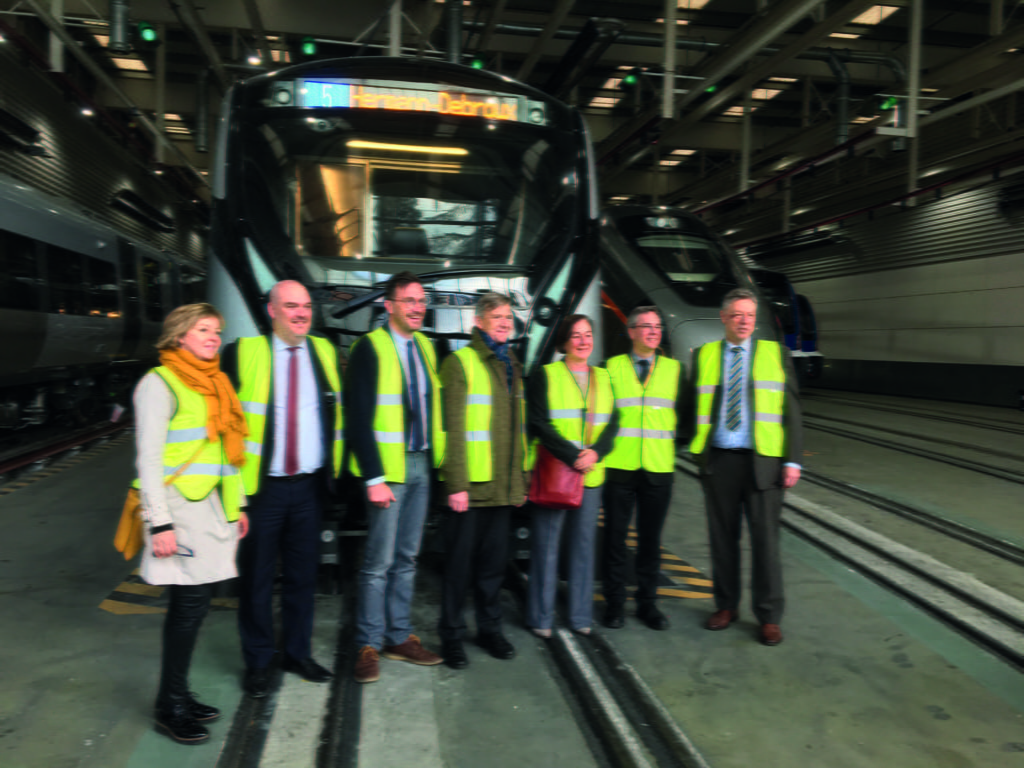
'The role of politicians is very important because they need to have a vision and an ambition. In my case I would like to have a “One Brussels” with one ambition and one vision and not 19 different municipal ones'
